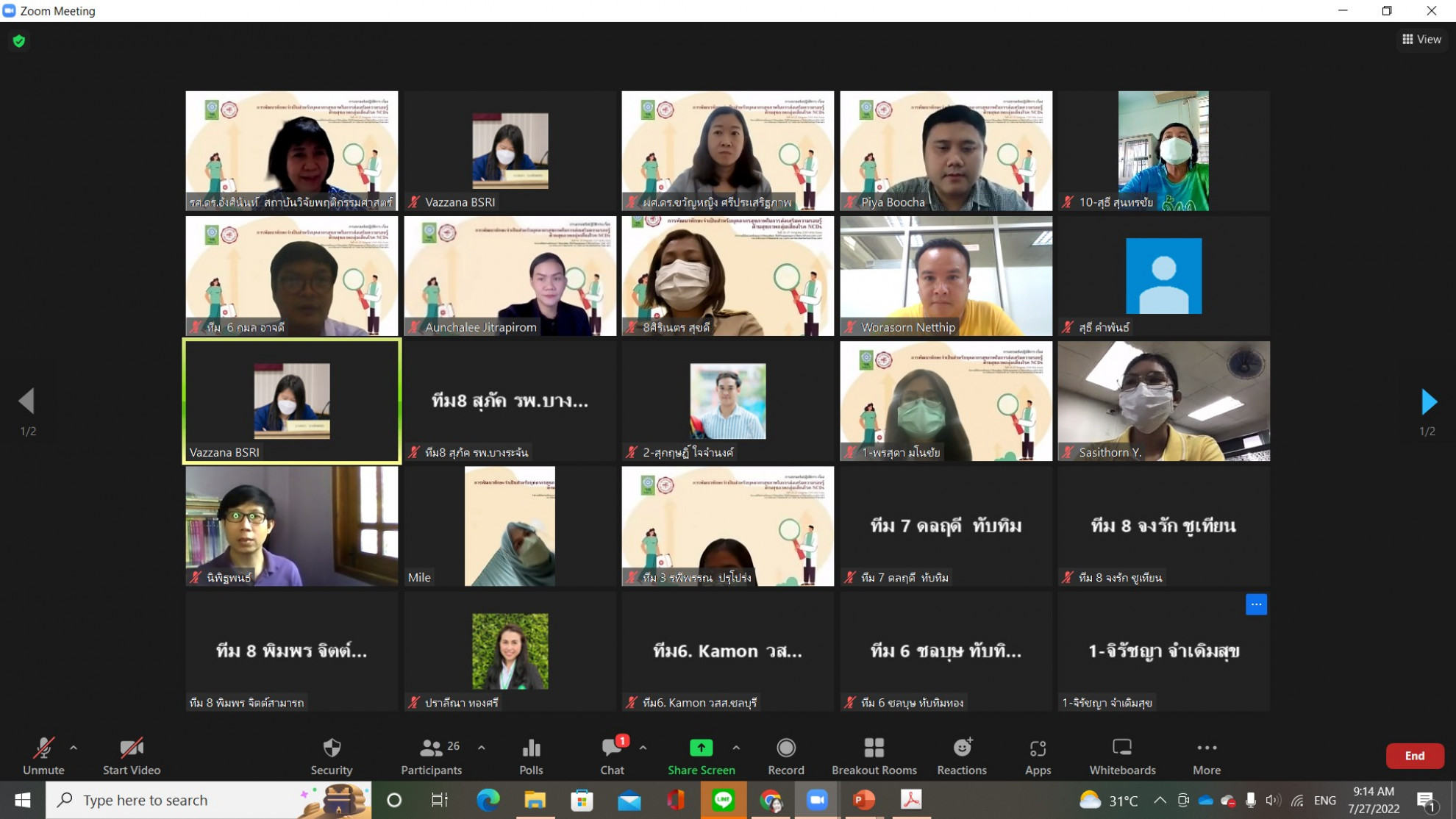





| Target | Indicator | Result |
|---|---|---|

SDG 3
GOOD HEALTH AND WELL-BEING
|
||
| 3.4 By 2030, reduce by one third premature mortality from non-communicable diseases through prevention and treatment and promote mental health and well-being | 3.4.1 Mortality rate attributed to cardiovascular disease, cancer, diabetes or chronic respiratory disease | In respect of construct validity, the 28-item HL Scale achieved an overall Cronbach’s alpha of 0.94 and a factor loading ranging between 0.67-0.84; similarly, the 30-item SHB Scale achieved an overall Cronbach’s alpha of 0.94 and a factor loading ranging between 0.40-0.82; and 2) The causal relationship model of SHB was consistent with the empirical data; in addition, HL positively influenced SHB (direct effect = 0.82, p<.05), and HL was a key factor, could predict SHB by 67.00%. |
| 3.d Strengthen the capacity of all countries, in particular developing countries, for early warning, risk reduction and management of national and global health risks | 3.d.1 International Health Regulations (IHR) capacity and health emergency preparedness | Both developed scales are high-quality assessment instruments that can be used by healthcare providers in assessing NCD risks and predicting SHB in order to organize activities enhancing people’s HL and knowledge for decreasing NCD risk behaviors. |
Non-communicable diseases (NCDs) are the world’s health problem in terms of the number of deaths and overall burden of disease. According to WHO (1), the global number of NCD deaths tended to increase from 68% in 2007 to 71% of all deaths worldwide in 2019, and 80% of all deaths from NCDs in 2008 occurred in low- and middle-income countries. Most NCD deaths are caused by cardiovascular diseases (44%), followed by cancers (22%), respiratory diseases (9%), and diabetes (4%). In Thailand, NCDs account for 75% of the Thai people’s mortality rate, leading to a rise in disability-adjusted life-years and an immense impact on national economic and social development (2). According to the Ministry of Public Health, Thailand’s reports between 2015-2019, the top three causes of NCD deaths are all types of cancer, stroke, and heart attacks respectively, equivalent to 125.0, 53.0, and 43.7 deaths per 100,000 population (3).
One of the leading causes of NCD sickness and death is health risk behavior. People of all ages should be encouraged to engage in healthy lifestyle behavior, i.e. healthy eating, exercising, no drinking/smoking, controlling emotions, nurturing positive relationships with others, sacrificing for the greater good, and doing volunteer work to grow spiritually (4,5,6). Health behavior is influenced by many factors such as population characteristics, psychological characteristics, and surrounding environments, including health literacy (HL) which is significantly linked with one’s health behavior (7,8,9). Therefore, in order to improve people’s health behavior, their HL should be enhanced to build their long-term capacity for self-care and the ability to predict potential health risks. The fact that most people in the country have low HL can negatively affect the national health status such as high mortality, hospitalization, and the cost of treatment. People’s lack of self-care ability can lead to a growing number of NCD patients (10). In Intarakamhang and colleagues’ studies related to HL and health behavior from 2014-2018, several scales were developed i.e. HL scale for childhood overweight, HL scale for Thai adults, the HL scale for unwanted pregnancy prevention of Thai females aged 15-21 Years, and Environmental HL scale for homebound and bedbound Elder (7,11,12,13). All of the scales had high reliability and validity and the studies’ results confirmed that HL was associated with health behavior among all age groups. In addition, good health behaviors from the perspective of sustainability mean the action of developing and maintaining well-being, consisting of being self-reliant, being actively engaged with society, developing spiritual wisdom, maintaining a healthy lifestyle, engaging in active learning, building up financial security, and strengthening family (14). Therefore, the sufficient Thai lifestyle for good health is based on the sufficiency economy philosophy to provide people with immunity and protection against diseases by promoting people's HL throughout their lifespan (15,16). The researchers found only one qualitative study investigating Thai people’s health behavior based on the philosophy of sufficiency economy (17). No quantitative instrument has yet been developed for assessing sufficiency health behavior (SHB) focused on living the middle way (living a simple, careful life) to avoid health risk factors.
The research clearly supports that HL has a high influence on Thai people's SHB. If the government agencies can promote Thai people to have a high level of HL, the result of the development in Thai people having SHB is up to 67%. Therefore, this knowledge should be a policy direction for people's health promotion. Health providers and health professionals should continually organize learning activities to improve the HL of Thai people of all ages. Thai people are able to rely on themselves and have immunity to self-health care in accordance with the Thai lifestyle based on the sufficiency economy philosophy.
Researchers extend the studying area by healthcare providers using these high-quality scales to assess risk factors for NCDs in order to organize activities promoting HL and health behavior that match working-age people’s lifestyles. The yielded results can be used in designing relevant future research such as an exploratory study in which the researchers may use the developed scales before and after the experiment or focus on enhancing HL due to predict health behavior, or a qualitative study in which the researchers study people with high levels of HL and SHB to develop a guideline insufficient health living for NCD risk reduction.

